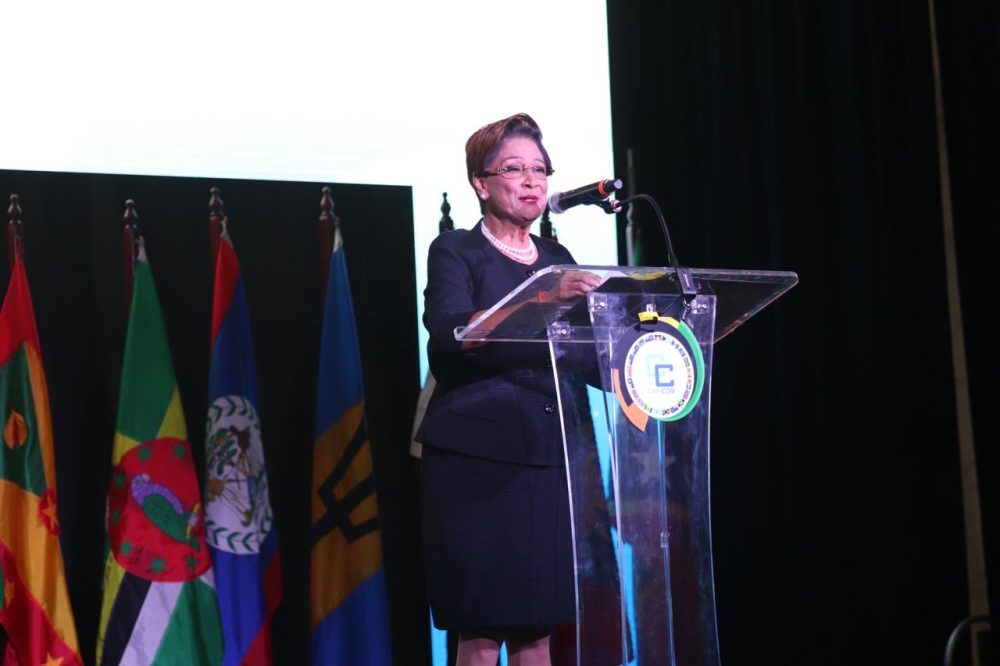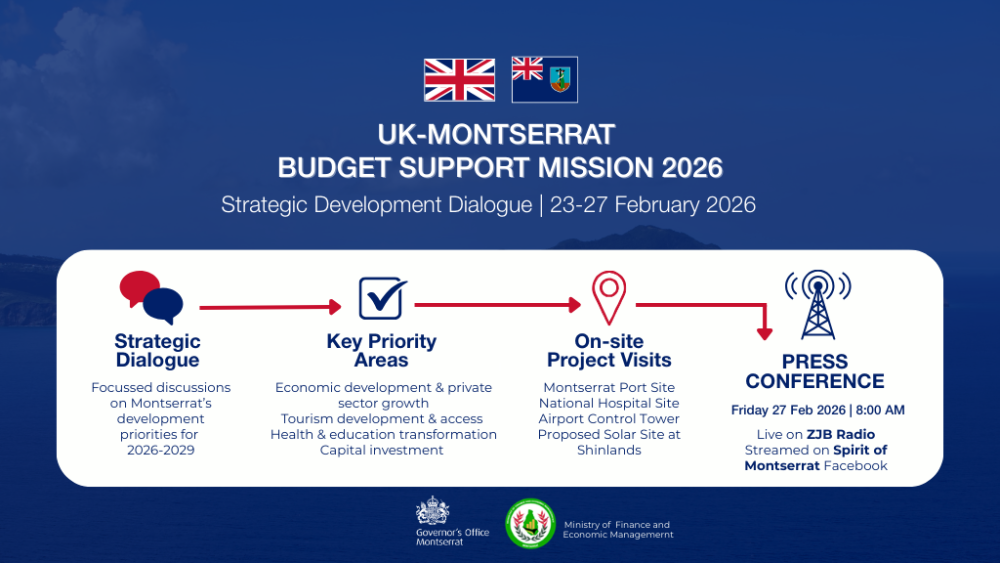Despite the progress observed in the Americas towards the Elimination of Mother to Child Transmission of HIV and syphilis (EMTCT), and the successful incorporation of hepatitis B (HBV) and Chagas disease into Elimination programs (EMTCT Plus), the timely diagnosis and treatment in pregnant women to eliminate congenital syphilis is of concern.
Montserrat is one of eight Caribbean islands who has been validated by the World Health Organisation (WHO) for the EMTCT of HIV and syphilis.
Congenital syphilis remains a major challenge, with reductions in syphilis screening among pregnant women being observed even before the COVID-19 pandemic. Coverage of HIV screening among pregnant women during antenatal care in Latin America and the Caribbean reached a historic high of 80% in 2019 but reduced to 68% in 2021. As with other vaccines, HepB coverage has been declining in the Caribbean for the last decade, with a significantly accelerated loss in coverage during the COVID-19 pandemic.
This concern was made today by Acting Director, Communicable Diseases and Environmental Determinants of Health at the Pan American Health Organization (PAHO), Dr Massimo Ghidinelli, during a webinar – A decade of Progress of the EMTCT Plus Initiative.
“We have data that is quite worrisome…There are clear indications that congenital syphilis will not be eliminated amongst the general population and in the context of more impacted key populations and in the specific population of pregnant women. Whenever amongst these populations, the prevalence of syphilis is above a certain threshold, then the elimination of congenital syphilis despite our multiple interventions is a very elusive goal,” Dr Ghidinelli cautioned.
Dean Chambliss, Subregional Program Director, Caribbean Subregional Program Coordination Office, called for the strengthening of the primary prevention and treatment services for pregnant women to ensure a generation free of congenital syphilis, while promoting interprogrammatic coordination and collaboration at the primary care level.
The Pan American Health Organization (PAHO) collaborated with the Center for Perinatology to develop the course to further enhance the capacities of all health care providers to provide timely and quality services to all syphilitic pregnant women, their partners, and the exposed infants. This e-training was designed with the support of the dedicated health care professionals from the Ministry of Health and Wellness in Jamaica.
By 2021, eight countries, Anguilla, Antigua and Barbuda, Bermuda, Cayman Islands, Cuba, Dominica, Montserrat, and Saint Kitts and Nevis, were validated by WHO for the EMTCT of HIV and syphilis. Four additional countries are on track for the dual validation HIV/syphilis in 2023-24.
“The certification of EMTCT Plus is the result of a harmonized approach, with effective integration of the primary prevention and treatment for the four diseases into maternal and child health services, with strategic linkages with other services such as sexual and reproductive health, family planning, laboratory services, and surveillance at the primary care level. Achieving EMTCT Plus certification is a significant marker of the quality of services provided by Maternal and Child Health Services, and therefore attaining and achieving validation of EMTCT Plus is a tremendous accomplishment,” Mr Chambliss underlined.
During the webinar, attended by some 300 people, the PAHO Virtual Campus for Public Health course Accelerating the Elimination of Congenital Syphilis: Ensuring Diagnosis and Treatment in the Americas Region was officially launched to support countries in effectively attaining and maintaining the EMTCT elimination status.
During the session participants received a progress report on EMTCT Plus from Dr Leandro Sereno, Advisor, Viral Hepatitis Prevention & Control, an update of technical guides and tools for validation of EMTCT from Advisor, HIV/STI, TB and Viral Hepatitis, Sandra Jones and heard country experiences from Brazil, Peru and Jamaica.
About PAHO
The Pan American Health Organization (PAHO) works with the countries of the Americas to improve the health and quality of life of its population. Founded in 1902, it is the world’s oldest international public health agency.
It serves as the Regional Office of WHO for the Americas and is the specialized health agency of the Inter-American system.
The PAHO Subregional Program is responsible for providing subregional technical cooperation and to strengthen PAHO’s engagement with the Caribbean Subregional integration mechanisms, the Caribbean Community (CARICOM) and its various bodies and organs; and to build synergistic partnerships with the
subregional institutions such as the Caribbean Public Health Agency (CARPHA) and the University of the West Indies (UWI), among others. PAHO’s subregional technical cooperation specifically focuses on public health issues which would benefit from economies of scale and for which agreement on proposed collective responses and actions would produce a far greater impact rather than individual country responses. The Subregional Program also plays a role in coordinating among the different PAHO country offices.
Discover more from Discover Montserrat
Subscribe to get the latest posts sent to your email.



